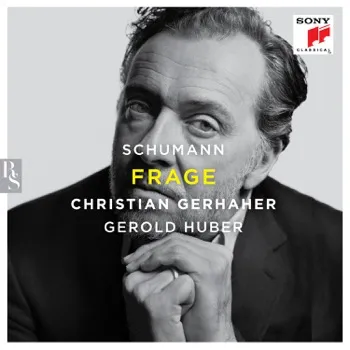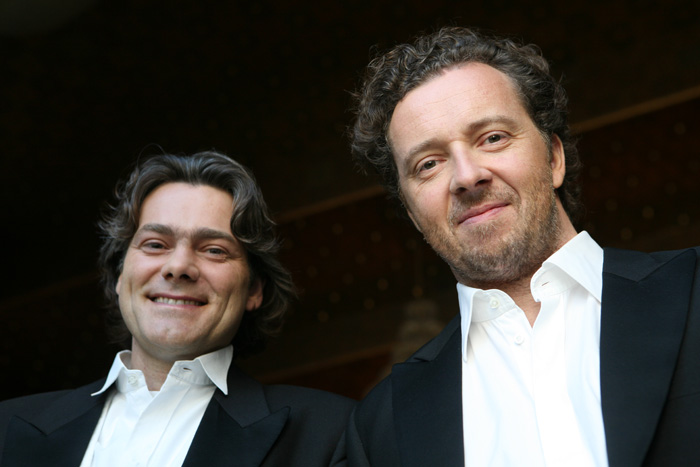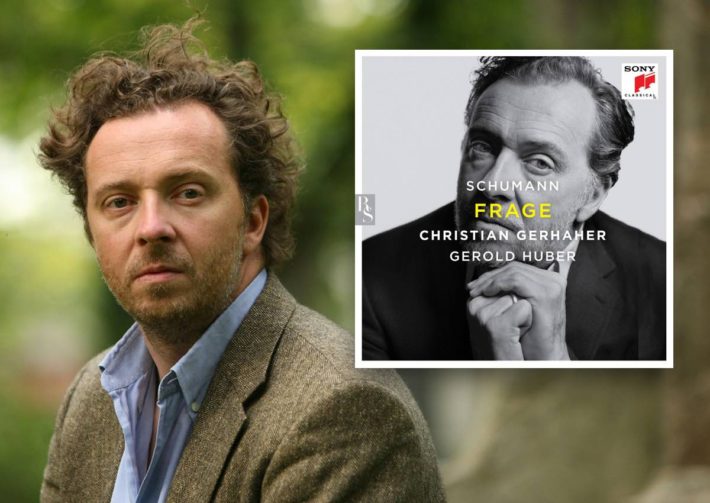There is almost no need to introduce the 30 years collaborators Christian Gerhaher and Gerold Huber. Their already rich discography includes most of the canonic lieder literature from Schubert and Schumann, first on the Arte Nova label and then on the RCA and Sony labels. We are told this is the first of what will be a complete Schumann lieder cycle, which will presumably mean revisiting famous cycles such as the Dichterliebe and two Liederkreis the two artists have already recorded to RCA.

Throughout the album, Gerhaher and Huber are in perfect artistic sync, acutely reacting to the words of the 29 songs compiling this recital. The selection here is wise and a joy to listen to in one sitting; Poems by few German lyricists dealing with nature, love, loneliness and death. And there is even some irony, such as the tale of two soldiers coming back from captivity (“Die beiden Grenadiere”, Op. 49 No. 1 – can you spot the French anthem popping into the music?). The harmonic progression works well too, the order of presentation never makes songs canceling-out each other.
But the main attractiveness of this album is, of course, the performance of these two great artists. There is some intimacy of partnership here between the two, intimacy of projection and of recording. The sense is of a deliverer of the poems who sings them in his own surroundings, performing to an interceptive audience or to an inner self. This atmosphere draws the listener in from the first bar of the album (Op. 107). This soft, hesitant opening of piano and voice, almost whispering, takes some courage, it’s not always persuading in concert or in a studio, but here the effect is chilling, less than 2 minutes of pure magic. It’s clear Gerhaher and Huber treats the Op. 107 as a full tale, as the temperament and outwardness tighten with the progression of the cycle, then coming to a close in the final, sixth song, returning to the style of execution of the first intimate song.

(Image: © Alexander Basta for Sony BMG Classical)
The main cycle here is obviously the longer Op. 35 (“Kerner Lieder”). Here Gerhaher shows what a versatile Bariton he is; The cycle starts off in a stormy fashion, quite literally, with ”Joy in a Stormy Night”. The second song, “Die, love and happiness” is a moving, intimate storytelling of the highest order – Just listen to it and see if you could remain indifferent. This is while it seems that the two performers are not doing much – But listen to the subtle changes of tempo and dynamics in the accompaniment, and the small tone coloring by the singer on certain words. It’s an art that conceals art, moving in its seemingly unassuming simplicity.
Some of the songs in this cycle are a true revelation, such as the touching “First Green” (Track 17), the mysterious “Silent Love” (Track 21. This is also where you’d find Huber at his most sensitive) or the musically highly original “Question” (“Track 22, which gave its name to the album).
Not all of the songs, in this cycle and other opuses in the album, are in the same artistic accomplishments of Dichterliebe Op. 48 or Liederkreis Op. 24 & 39. Schumann must have known this, since the 4 songs Op. 142 which closes this album, contains mainly songs omitted from the Dichterliebe and Kerner Lieder. In Gerhaher and Huber hands (and voice), however, they sound no less impressive.
Comparisons in this case pale. The famous Fischer-Dieskau / Eschenbach version of Op. 35 is predictably professional, but Fischer-Diskau can be too deliberate in his sensitivity to words and tension build-up, which tends to sound a bit too-planned or nonspontaneous. Hermann Pery’s also well-known performance of Op. 35 sounds old-fashioned these days, with a beautiful, deep voice that tends for the monotonous (and his accompaniment is unimaginative). Digital surveys of the Op. 35 includes Wolfgang Holzmaier fine account with Imogen Cooper (the studio version, not the live one) and Thomas Hampson’s more dramatic version with Geoffrey Parsons. None of those performances mentioned standing the comparison with this new version. It’s just in a different league.
It’s not with exaggeration to say that this could be one of the best classical music albums of the year (2018), and certainly should be in every Schumann or lieder collection. I for one can’t wait for the rest of the series.
“FRAGE”
Schumann – Lieder Op. 35, 49, 83, 107, 119/2, 142
Christian Gerhaher – Baritone
Gerold Huber – Piano
Sony Classical, CD 19075889192




















